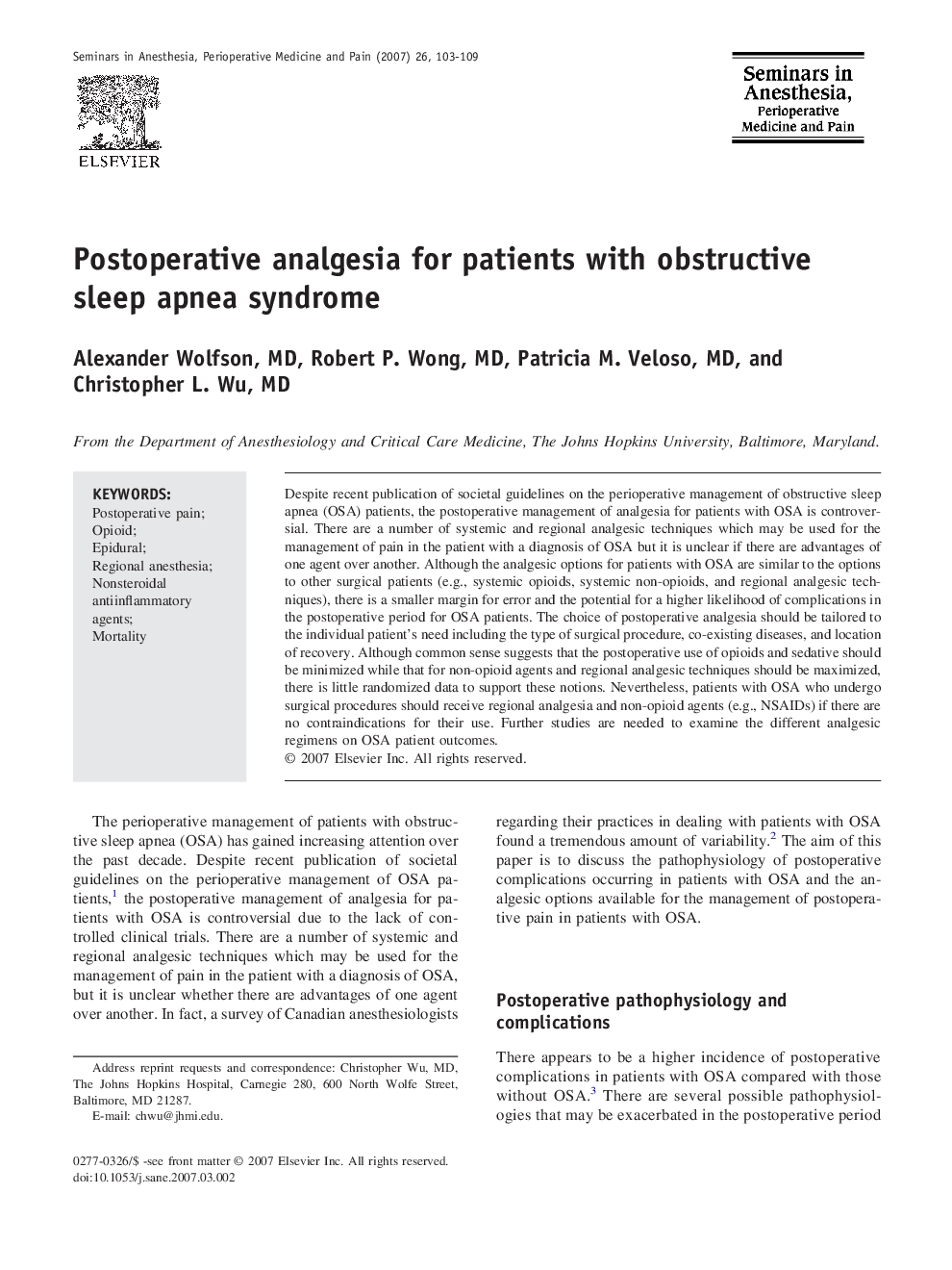| Article ID | Journal | Published Year | Pages | File Type |
|---|---|---|---|---|
| 2771175 | Seminars in Anesthesia, Perioperative Medicine and Pain | 2007 | 7 Pages |
Despite recent publication of societal guidelines on the perioperative management of obstructive sleep apnea (OSA) patients, the postoperative management of analgesia for patients with OSA is controversial. There are a number of systemic and regional analgesic techniques which may be used for the management of pain in the patient with a diagnosis of OSA but it is unclear if there are advantages of one agent over another. Although the analgesic options for patients with OSA are similar to the options to other surgical patients (e.g., systemic opioids, systemic non-opioids, and regional analgesic techniques), there is a smaller margin for error and the potential for a higher likelihood of complications in the postoperative period for OSA patients. The choice of postoperative analgesia should be tailored to the individual patient’s need including the type of surgical procedure, co-existing diseases, and location of recovery. Although common sense suggests that the postoperative use of opioids and sedative should be minimized while that for non-opioid agents and regional analgesic techniques should be maximized, there is little randomized data to support these notions. Nevertheless, patients with OSA who undergo surgical procedures should receive regional analgesia and non-opioid agents (e.g., NSAIDs) if there are no contraindications for their use. Further studies are needed to examine the different analgesic regimens on OSA patient outcomes.
